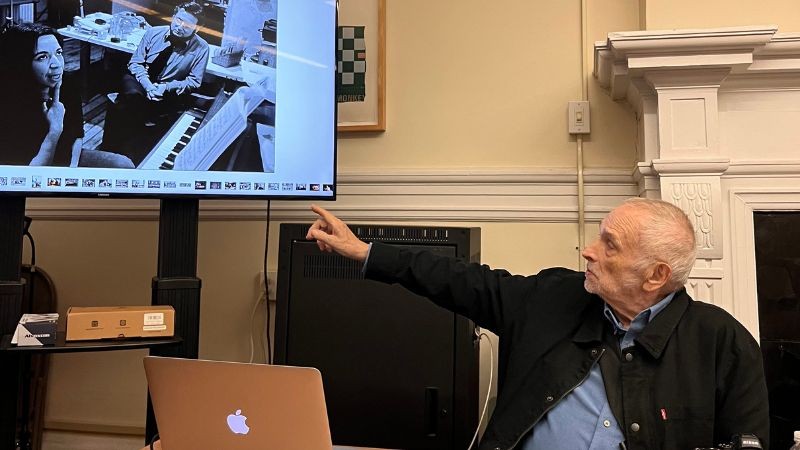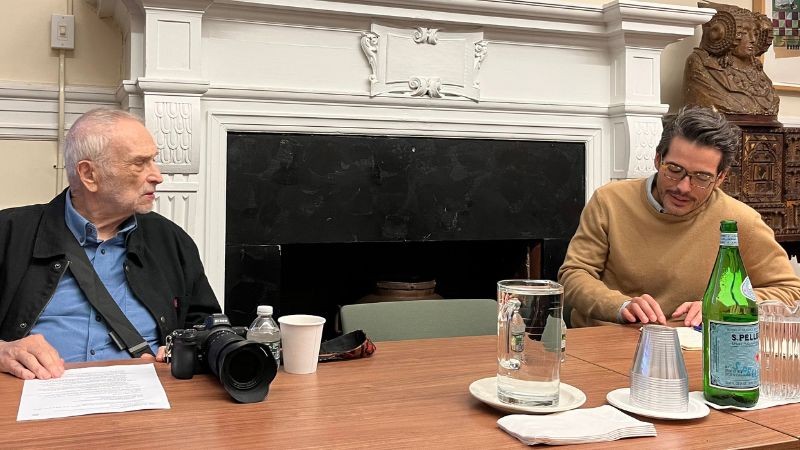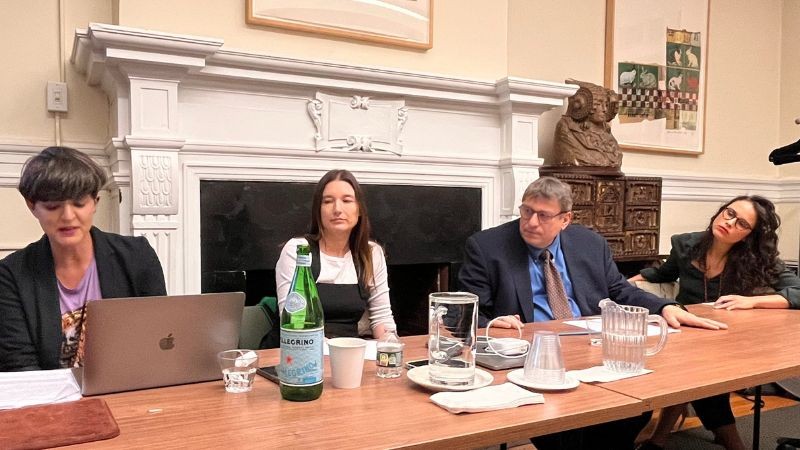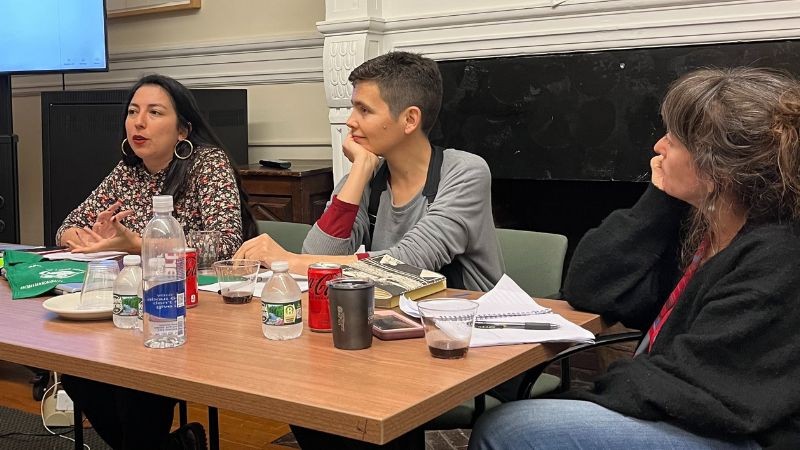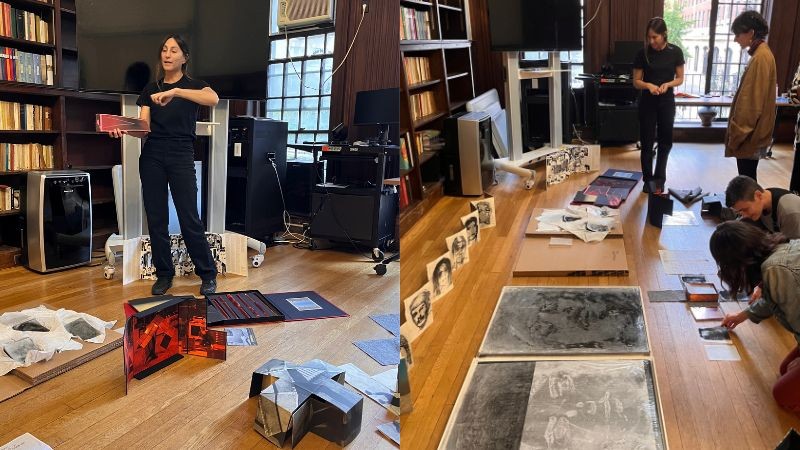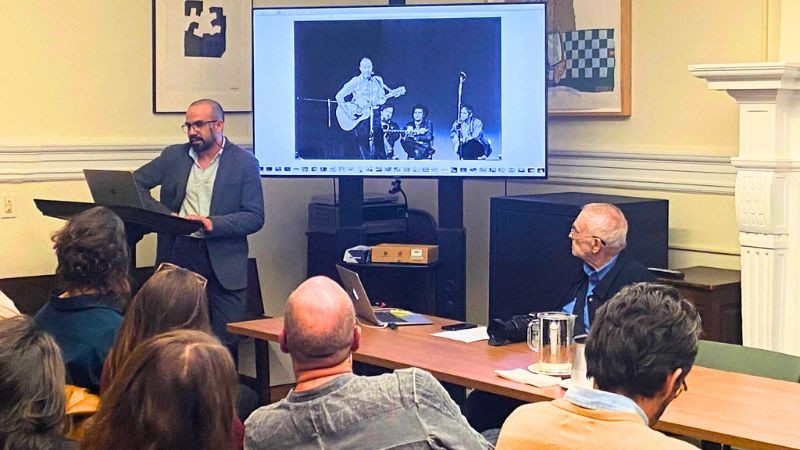"The Afterlives of Dictatorships" symposium marks half a century since the 1973 Chilean coup
The event held on campus in October critically examined the enduring impact of 20th-century Latin American dictatorships.
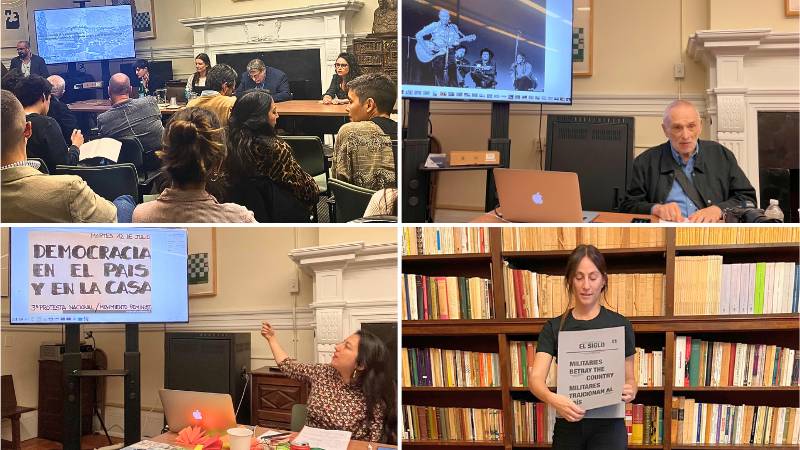
Commemorating the 50th anniversary of the 1973 Chilean civil-military coup, Columbia's Casa Hispánica became the venue for “The Afterlives of Dictatorships,” an international symposium that critically examined the enduring impact of 20th-century Latin American dictatorships, fostering thought-provoking discussions that delved into this significant yet painful chapter in the region's history.
The symposium, which took place during October 11 and 12, was a collaborative effort involving the Graduate Student Association of the Department of Latin American and Iberian Cultures (LAIC), the Santiago Global Center, the Columbia Institute for the Study of Human Rights (ISHR), the public humanities project Counter-Memories, supported by the Heyman Center for the Humanities at Columbia University, and the Chile/NYC 1973-2023 initiative.
The two-day event featured a diverse array of panels and discussions with a primary focus on exploring the legacies of these dictatorships, not only in Chile but also across the broader Latin American context. Each panel attracted an audience of approximately 40-50 attendees, including students, academics, artists, as well as members of the local community surrounding the Columbia campus, along with a group of Chilean exiles and activists representing various nationalities residing in New York.
The program consisted of several compelling sessions, including a panel conversation with Chilean-born and US-based photojournalist Marcelo Montealegre, and Columbia professor Jerónimo Duarte-Riascos. Additionally, a panel conversation featured Chileans Fernanda Carvajal (researcher at University of Buenos Aires) and feminist activist Alondra Carrillo, moderated by Susana Draper, professor of Comparative Literature at Princeton University. Carvajal and Carrillo provided alternative perspectives that challenged established narratives surrounding the dictatorship. Their discussions on the history of feminist and LGBTQ+ movements offered fresh insights, providing a different viewpoint and historical perspective on the period of the dictatorship.
The symposium also included a performance by Chilean multidisciplinary artist based in New York, Marı́a Verónica San Martı́n; a panel on the representations of memory during Chile's transition to democracy featuring Ángeles Donoso (Professor at the City University of New York, CUNY), Professor of Professional Practice in Film and Media, Richard Peña, and Theatre Professor María José Contreras (both faculty members of the Columbia School of the Arts), which was moderated by America's Quarterly journalist Luiza Franco; as well as an online discussion with academics Magdalena Novoa (Chile), and Alexandre Mourão (Brazil), which explored the Chilean de-monumentalizing initiative Monumentos Incómodos, and the arts, memory, and politics Brazilian collective Aparecidos Políticos.
A significant outcome of the encounter was the launch of the Counter-Memories oral history website. This initiative seeks to rekindle discussions about the legacies of twentieth-century military dictatorships in Latin America, taking into account contemporary debates on monuments, symbolic reparations, and anti-monumental activism. These discussions are held in dialogue with U.S. movements challenging the monumental and institutional legacies of slavery, confederate memory, and state violence.
Eduardo Vergara, PhD student at LAIC and one of the event’s organizers, highlighted the relevance of collaborating with the Counter-Memories project: “This cooperation facilitated placing the discussion about Chile within the broader context of Latin American dictatorships and connecting with initiatives aimed at challenging authoritarianism not only in Brazil and Chile but also in countries like Argentina and the United States,” he stressed.
Regarding the joint teamwork that brought this project to life, Vergara noted: “Working with the Santiago Global Center and the ISHR was very important for all of us. I hope this collaboration continues to yield results in the future as well."
